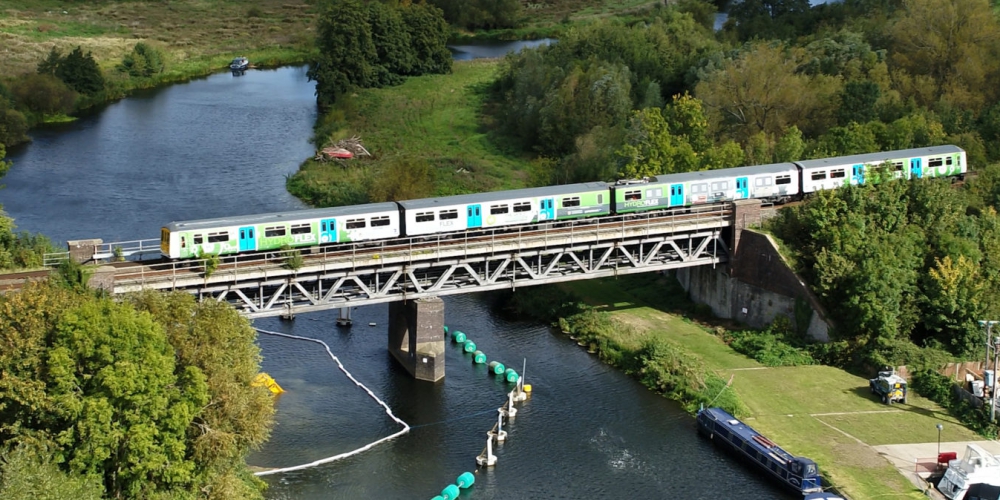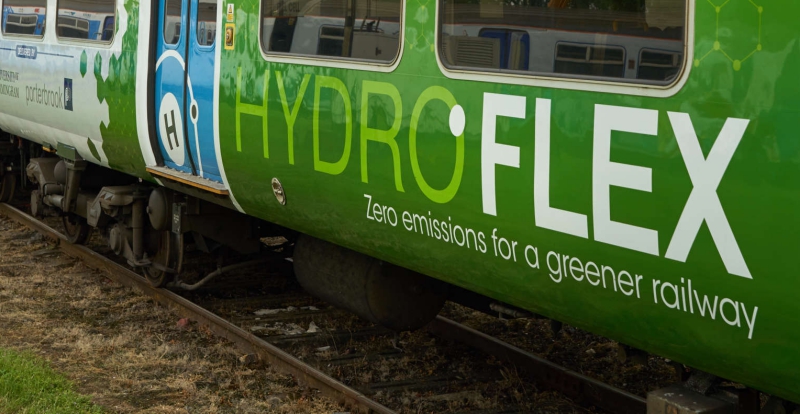Porterbrook also announced plans to start putting HydroFLEX into production, in response to customer demand. Work on the next stage of HydroFLEX is already well advanced with the University of Birmingham developing a hydrogen and battery power module that can be fitted underneath the production version of the train, which will create increased capacity for passengers in the train’s saloon area.
https://youtu.be/bSelH4h-mJ8
The HydroFLEX train on test is a demonstrator unit, the production version will be configured for operation using both overhead-electric-wires and hydrogen for non-electrified routes. This will make HydroFLEX particularly attractive to regions and routes where there is only partial electrification of the network.
Secretary of State for Transport, Rt Hon Grant Shapps MP said:
“As we continue on our road to a green recovery, we know that to really harness the power of transport to improve our country – and to set a global gold standard – we must truly embed change.
“That’s why I’m delighted that through our plans to build back better we are embracing the power of hydrogen and the more sustainable, greener forms of transport it will bring.”
The next stages of HydroFLEX are already well underway, with the University of Birmingham developing a hydrogen and battery powered module that can be fitted underneath the train, which will allow for more space for passengers in the train’s carriage.
Mary Grant, CEO of Porterbrook, said:
“Porterbrook is committed to innovation and the delivery of a carbon neutral and sustainable railway. Today’s mainline testing of HydroFLEX achieves another important milestone on this journey. I’m also delighted to be able to announce our intention to start producing HydroFLEX trains, creating the world’s first electric and hydrogen powered bi-mode rolling stock, as well as generating significant opportunities for the UK supply chain.”
Professor Stephen Jarvis, Head of the College of Engineering and Physical Sciences at the University of Birmingham, says:
“The University of Birmingham is setting the pace for rail innovation both in the UK and globally. The HydroFLEX project is a great example of how world-class R&D, together with the right industry partnerships, can deliver decarbonisation technologies that are both innovative and practical.
“Successful mainline testing is a major milestone for HydroFLEX and is a clear demonstration of the important role hydrogen has to play in the UK’s rail industry. Through the University and Porterbrook, we are looking forward to delivering this technology into the UK transport market, ensuring a cleaner future for our railways.”
The HydroFLEX mainline testing programme has been supported by Innovate UK, who have provided funding to two of the development work-streams.
https://youtu.be/GRI2ePoCzS8
The ground-breaking technology behind the trains will also be available by 2023 to retrofit current in-service trains to hydrogen helping decarbonise the rail network and make rail journeys greener and more efficient.
Other industry partners who have supported delivery of HydroFLEX include: Chrysalis Rail for installation work; Denchi Group for traction batteries; Ballard Power Systems for the fuel cell; Luxfer for hydrogen storage tanks; Ricardo Rail for approvals support; Fuel Cell Systems for hydrogen refuelling equipment; Jeff Vehicles for engineering support on fuel cell control; SNC Lavalin for development of a new maintenance regime; DEU for supply of integration steelwork and miscellaneous installation materials; Aura for exterior livery design; and dg8 for design and engineering support.
Source: Press Release


